Collin Gifford Brooke
I received my PhD in the Humanities, with concentrations in rhetoric/composition and critical theory, from the University of Texas at Arlington in 1997. I’d always been a bit of a technology person–I bought my first Mac during the fall term of my first year in college, and I had some skills. But technology was just something else I did until I got into my doctoral program. The emergence of the web and of hypertext authoring software like Storyspace ended up being a great fit for someone like me who had always been fascinated by experimental writing. By the time I was ready to work on a dissertation, with Lanham, Bolter, Laurel, and others dancing in my head, I ended up with a project that eventually led to my first book.
Technology is less a content area that one might master, and more a collection of attitudes that cut across disciplines and phenomena. At least, that’s how it’s felt to me. Technology, like rhetoric, is both tactical and strategic; I think of it as something that we do rather than something that simply is. I don’t think that it’s intrinsically radical or conservative, and yet, it’s not a neutral factor independent of its consequences. We sometimes mistake it for something that exists independently from ourselves, but we struggle sometimes to understand how we’re implicated and embodied with it, by it, for it, and against it.
My training is historical, philosophical, and theoretical, and I think those influences manifest themselves in my work. I don’t believe that mine is the one, correct way to approach all things rhetorical, and I try to be mindful of the various ways that scholarly work sets its own conditions and operates within or against them. There’s a part of me that would like for everything to fit together seamlessly, but that idealism is tempered, on my best days, with the pragmatic understanding that the world is messy and ill-fitting most of the time. I’m quietly omnivorous in that I read far more (and far more widely) than I ever expected to when I embarked on my graduate education. I’m gently optimistic in that I believe in saying “yes” to a text the first time that I read it. And I’m a closet perfectionist with piles and piles of unwritten essays haunting the corners of my mind.
(This page is a bit of a mess, but I eventually hope to provide more links to full text, abstracts, keywords, etc. for my work.)
Books
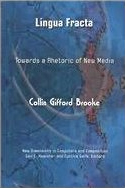 |
Lingua Fracta: Towards a Rhetoric of New Media Winner of the 2009 Computers and CompositionDistinguished Book AwardLingua Fracta begins from the assumption that there is an intrinsically technological dimension to rhetoric, arguing that we have become so accustomed to practicing rhetoric in the context of print technologies that we have often naturalized or ignored that dimension. New communication and information technologies do not simply provide us with new sites of rhetorical practice; instead, they challenge us to reconceive rhetoric altogether. This groundbreaking volume argues that a rhetoric of new media should attend to ecologies of practice treating interfaces rather than texts as our sites and units of analysis In order to devise such a rhetoric, Lingua Fracta offers a systemic reconsideration of the canons of classical rhetoric. Rather than understanding the canons as stages in a linear composing process, this book describes the canons as repertoires of multiple pracices that shift as we move among media. (Amazon) |
Essays
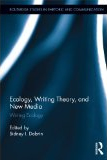 |
Brooke, Collin Gifford. “Discipline and Publish: Reading and Writing the Scholarly Network.” Ecology, Writing Theory, and New Media. Ed. Sidney I. Dobrin. New York: Routledge, 2012. 92-105. (Amazon) |
 |
Brooke, Collin and Rickert, Thomas. “Being Delicious: Materialities of Research in a Web 2.0 Application.” Beyond Postprocess. Eds. Sidney I. Dobrin, J. A. Rice, and Michael Vastola. Logan: Utah State UP, 2012. 163-179. (Amazon) |
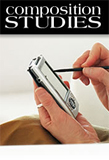 |
Gries, Laurie E. and Brooke, Collin Gifford. “An Inconvenient Tool: Rethinking the Role of Slideware in the Writing Classroom.” Composition Studies38.1 (Spring 2010).Reprinted in The Best of the Independent Rhetoric and Composition Journals 2010, Eds. Steve Parks, Linda Adler-Kassner, Brian Bailie, Collette Caton. Clemson: Parlor Press, 2011. (Parlor Press) |
 |
“Slideware 2.0: Taking Presentations Beyond the Desktop.” Kairos: A Journal of Rhetoric, Technology and Pedagogy 14.1 (Fall 2009): http://kairos.technorhetoric.net/14.1/reviews/brooke/index.html. |
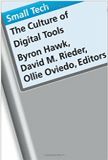 |
“Revisiting the Matter and Manner of Linking in New Media.” Small Tech: The Culture of Digital Tools. Byron Hawk, David Rieder, and Ollie O. Oviedo, eds. Minneapolis: University of Minnesota Press, 2008. (Amazon) |
 |
“Joseph Janangelo and the Analogics of New Media.” College Composition and Communication 59.2 (Dec 2007): 284-294. (JSTOR) |
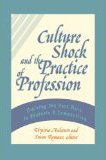 |
[with Paul Bender] “Isolation, Adoption, Diffusion: Mapping the Relationship Between Technology and Graduate Programs in Rhetoric and Composition.” Culture Shock and the Practice of Profession: Training the Next Wave in Rhetoric and Composition. Virginia Anderson and Susan Romano, eds. Creskill, NJ: Hampton Press, 2006. 265-286. |
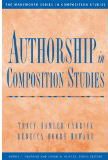 |
“Authorship and Technology.” Authorship in Composition Studies. Eds. Tracy Hamler Carrick and Rebecca Moore Howard. Boston: Thomson Wadsworth, 2006. 89-100. |
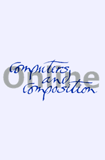 |
“Weblogs as Deictic Systems: Centripetal, Centrifugal, and Small-World Blogging.” Computers and Composition Online (Fall 2005): http://www.bgsu.edu/cconline/brooke/brooke.htm. |
 |
“Mirror, Mirror on the Web…” Inside Higher Ed: Views. October 11, 2005. http://insidehighered.com/views/2005/10/11/brooke |
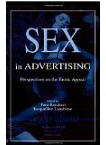 |
“Sex(haustion) Sells: Marketing in a Saturated Mediascape.” Sex in Advertising: Perspectives on the Erotic Appeal. Thomas Reichert and Jacqueline Lambiase, eds. Mahwah, NJ: Lawrence Erlbaum Assoc., 2003. 133-150. |
“Where do you want to learn tomorrow? The paradox of the virtual university.” Virtual Publics. Beth Kolko, ed. New York: Columbia University Press, 2003. 265-285.
“Perspective: Towards the Remediation of Style.” Enculturation: A Journal of Rhetoric, Writing, and Culture 4.1 (2002): http://enculturation.gmu.edu/4_1/style/.
“Introduction: Notes on Visual Rhetoric.” Enculturation: A Journal of Rhetoric, Writing, and Culture 3.2 (2001): http://enculturation.gmu.edu/3_2/introduction.html
“Forgetting to be (Post)Human: Media and Memory in a Kairotic Age.” JAC: A Journal of Composition Theory 20.4 (2000): 775-795.
“Making Room, Writing Hypertext.” JAC 19.2 (1999): 253-268.
“Cybercommunities and McLuhan: A Retrospect.” Rhetoric, the Polis, and the Global Village. C. Jan Swearingen, ed. Hillsdale, NJ: Lawrence Erlbaum Associates, 1999. 23-27.
[with David Metzger] “Sound Teachings, the ElectriChrist, and the Recovered Vision of the Corinthian Women Prophets.” PRETEXT: Electra (Lite) 2.1 (1998).“Disorientalism: A Manifesto for Ineffective Hypertext Design.” Rhetoric and Technology in the Next Millennium. William E. Tanner and Suzanne S. Webb, eds. Mesquite, TX: Caxton’s Modern Art Press, 1998.
“The Fate of Rhetoric in an Electronic Age.” Enculturation: A Journal of Rhetoric, Writing, and Culture 1.1 (1997).